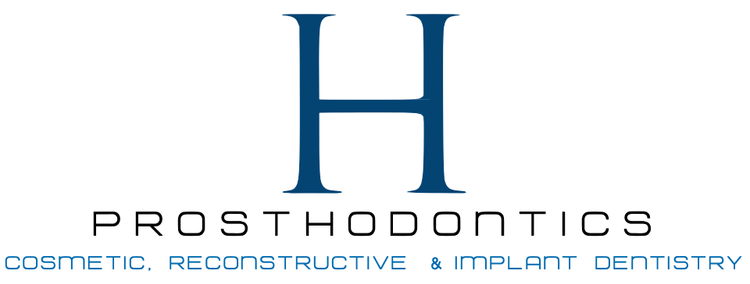prosthodontics
What’s a Prosthodontist?
A prosthodontist is a dentist with additional education in the restoration and replacement of missing teeth as well as a wide variety of other esthetic and cosmetic procedures. Prosthodontics is one of only nine dental specialties recognized by the American Dental Association (ADA). After graduating from dental school, prosthodontist complete a three or four year ADA-accredited residency program. It includes lectures and seminars, an intensive laboratory and clinical experience in fabricating crowns, bridges, veneers, inlays, removable complete and partial dentures, and dental implants. Residents also receive extensive training in diagnosing and treating temporomandibular disorders (TMD) of the jaw, traumatic injuries to oral structures, and congenital or birth anomalies such as cleft palate, and oral cancer reconstruction. In addition, they are qualified to manage bruxism and Prosthodontist are dedicated to the highest standards of care in the restoration and replacement of teeth.
Because of their additional education and training, Prosthodontist are experts in diagnosis, treatment planning and restorative procedures. Your Prosthodontist can restore your oral function and improve the esthetic appearance of your smile through:
Replacement of broken, worn, or decayed teeth with crowns, veneers or inlays
Placement of implant crowns and prostheses
Replacement of missing teeth with bridges
Fabricating removable dentures
Restoration of the occlusion
Management of TMJ disorders and bruxism (ie. tooth grinding)
Your prosthodontist will work closely with you to develop a comprehensive plan to treat your specific situation and explain what results you can expect.
What does it mean to Board Certified?
After completing an accredited residency program, prosthodontist have the option of applying for board certification in the specialty. Subsequent to completing a comprehensive written examination, candidates must present three patient cases and defend their diagnosis, treatment, and results to a panel of examiners, all of whom are experienced board certified prosthodontists. After successfully challenging the multipart process, which can take up to four years, the prosthodontist becomes certified and is recognized as a Diplomate of the American Board of Prosthodontics. To maintain their certification, Diplomates must demonstrate their commitment to attend their continuing professional education by attending or presenting scientific lectures or publishing articles or textbook chapters.










